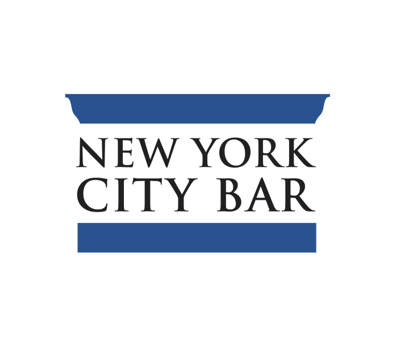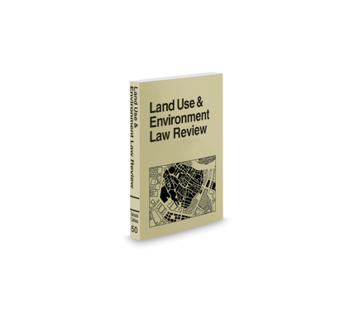June 30, 2020
June 2020 at Policy Integrity
- Supreme Court Rulings
- Litigation Updates: SNAP Benefits, Rio Grande LNG
- FERC and the Future of Net Metering
- COVID-19 and Deregulation
- Davis Noll Appointed as Co-Chair of the NYC Bar's Environmental Law Committee
- Revesz’s Article Selected for Environmental Law Anthology
- Forthcoming Book on Federal Climate Policy and the Clean Air Act
- More This Month
-
Supreme Court Rulings: DACA and CFPB
The Supreme Court blocked the Trump administration’s attempt to end Deferred Action for Childhood Arrivals, which protects about 700,000 young immigrants from deportation. We previously filed briefs in support of challenges to the DACA rescission in the Ninth and Second Circuits. Those briefs focused on the administration’s illogical “litigation risk” rationale for its decision, as well as its failure to consider the costs that rescission would impose on DACA participants and their communities. Bethany Davis Noll spoke with Bloomberg Law, noting the administration's dismal loss rate and an important trend that is on evidence in the DACA case: judges are ruling against the administration even when they are Republican-appointed.
In a 5-4 decision, the Supreme Court sided with the Trump administration to hold that the removal provision of the head of the Consumer Financial Protection Bureau is unconstitutional. While the CFPB will continue to exist, the president is now able to fire its director at will. Richard Revesz’s amicus brief in the case was cited in Justice Kagan’s dissent.
-
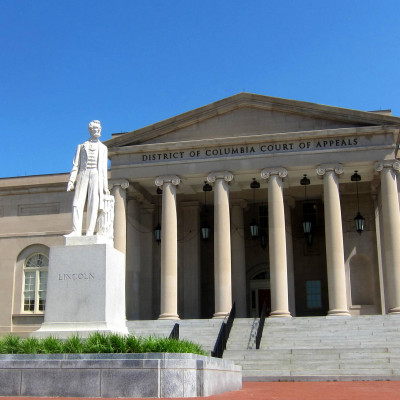
Litigation Updates: SNAP Benefits, Rio Grande LNG
Under recent revisions to the Supplemental Nutrition Assistance Program, nearly 700,000 current beneficiaries would lose eligibility—harming the health of those individuals and likely causing economic disruption in the food sector. We filed an amicus brief in a federal lawsuit challenging the rule, detailing how the Department of Agriculture’s analysis fails to assess the profound and widespread costs of substantial disenrollment from SNAP assistance.
The Rio Grande natural gas terminal and Rio Bravo pipeline in Texas, if constructed, would produce over nine million tons in direct greenhouse gas emissions every year. Our amicus brief in the D.C. Circuit explains how the Federal Energy Regulatory Commission failed to analyze the serious harms resulting from these emissions when it approved the project. We explain that the Social Cost of Carbon—which reveals that the project would cause billions of dollars in climate damages over its lifetime—can be readily applied to assess the significance of the project’s impacts. We also explain that increases in other pollutants caused by the project, like ozone, can be dangerous even if pollution levels remain below national standards, and that FERC erroneously dismissed these consequences.
-
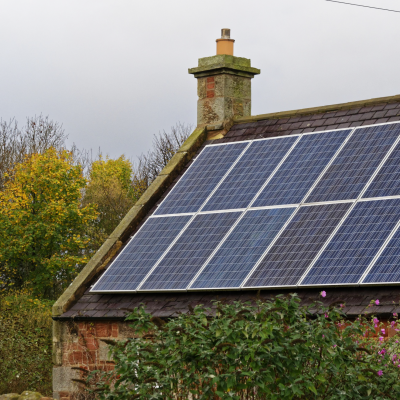
FERC and the Future of Net Metering
A mysterious group called the New England Ratepayers’ Association asked FERC to overturn its policy of net metering—a move that would reduce compensation for homes, businesses, and municipalities that have installed solar panels. Justin Gundlach and Dr. Burcin Unel wrote a piece in Utility Dive rebutting the proposal. They argue that FERC should say no to NERA—not because net metering should last forever, but because states, not federal regulators, have the tools needed to reform it. We also submitted comments to FERC detailing how NERA’s reasoning is flawed.
-
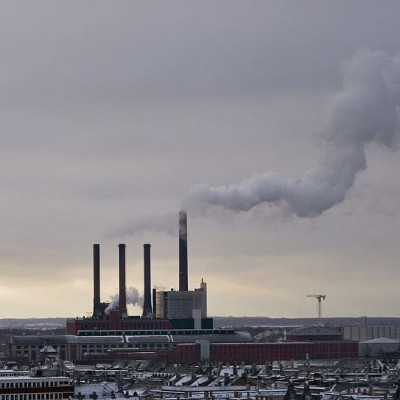
COVID-19 and Deregulation
Citing the economic toll of the COVID-19 pandemic, President Trump signed two executive orders aimed at reducing enforcement of environmental laws and fast-tracking infrastructure projects. Richard Revesz spoke with The Washington Post, explaining that while the courts will likely reject these deregulatory actions, federal officials may stop enforcing critical regulations in the meantime. We have been tracking the reduced enforcement of environmental laws since the start of the pandemic.
-
Davis Noll Appointed as Co-Chair of the NYC Bar’s Environmental Law Committee
Bethany Davis Noll was recently appointed as co-chair of the New York City Bar Association’s Environmental Law Committee for the term starting in the fall of 2020. Through meetings, events, and reports, the committee addresses current legal and policy issues related to the regulation of the city’s environment and natural resources.
-
Revesz’s Article Selected for Environmental Law Anthology
An article by Kimberly Castle and Richard Revesz was selected to be reprinted in Thomson Reuters’ 2020 Land Use and Environment Law Review, as one of the four leading environmental law articles published in 2019. Castle and Revesz’s article, Environmental Standards, Thresholds, and the Next Battleground of Climate Change Regulations, argues principally that the co-benefits of particulate matter reductions deserve a meaningful role in regulatory cost-benefit analysis.
-
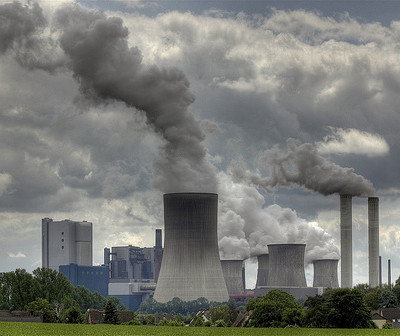
Forthcoming Book on Federal Climate Policy and the Clean Air Act
Section 115 of the Clean Air Act offers unique potential as a pathway to address the climate crisis. We have been working with the Sabin Center at Columbia Law School and the Emmett Institute at UCLA School of Law to analyze key aspects of Section 115. This fall, we are jointly releasing a book detailing how this approach could be the backbone of an effective plan. A detailed summary of the book is now available.
-
More This Month
We also submitted comments on:
- HHS’s blood donation policies
- EPA’s economic analysis guidelines
- Oklahoma’s application for Medicaid waiver
- Oregon PUC’s efforts to reduce emissions
- Colorado PUC’s valuation of DERs
- Colorado oil and gas lease sale
- Energy conservation standards for heat pumps
- Energy conservation standards for heating/cooling

